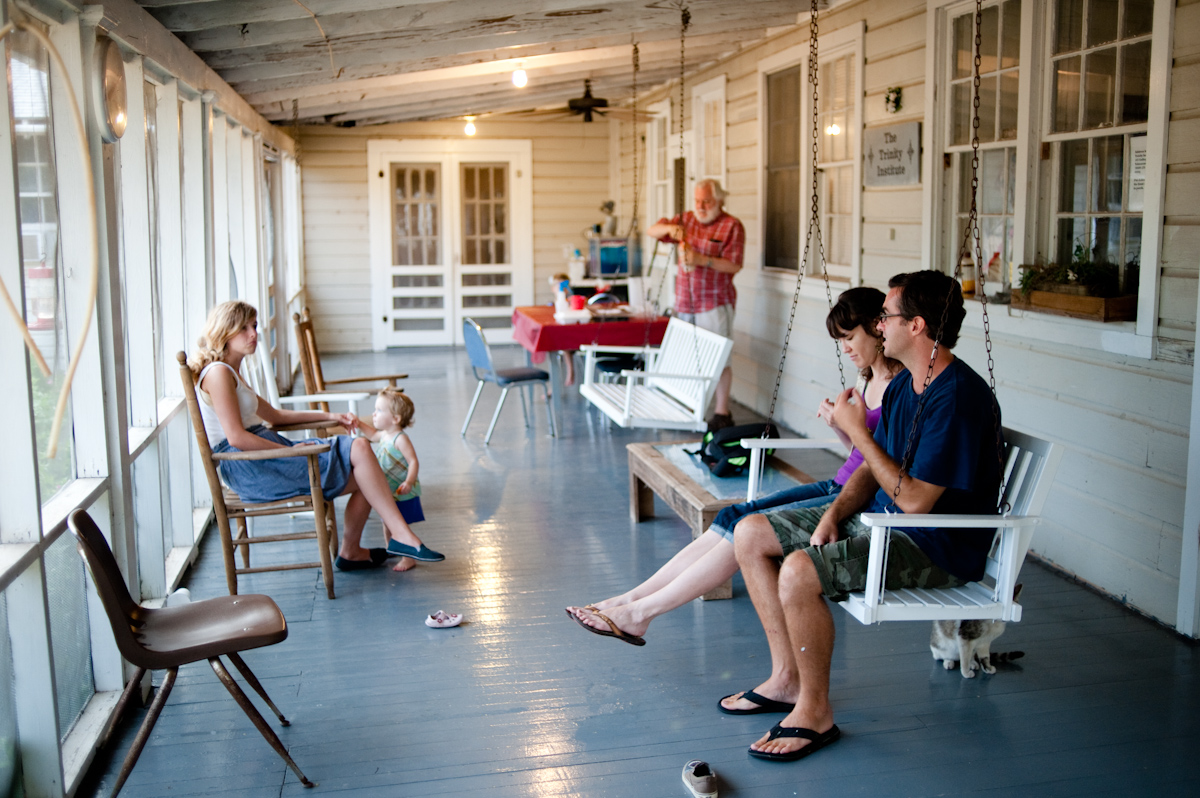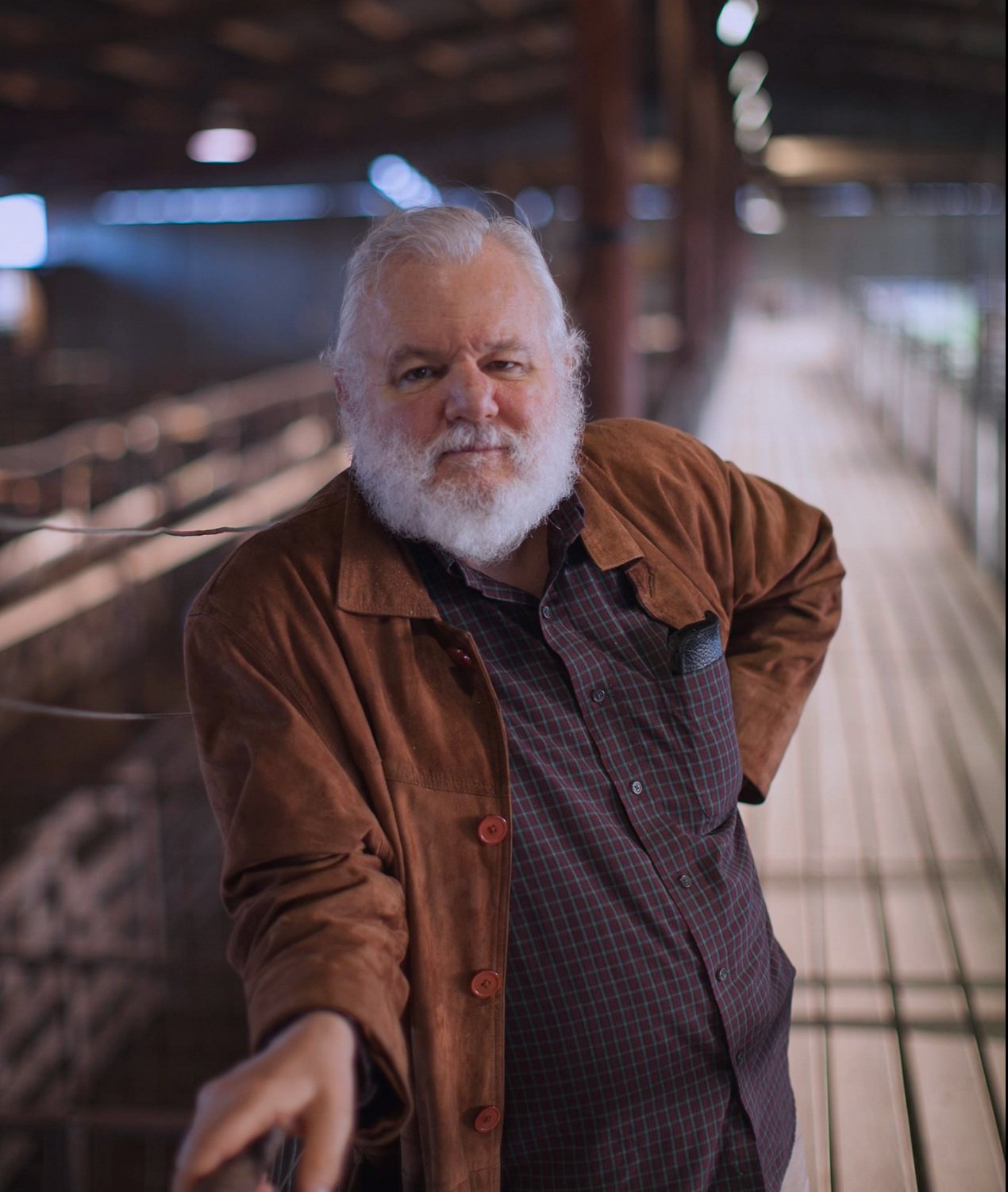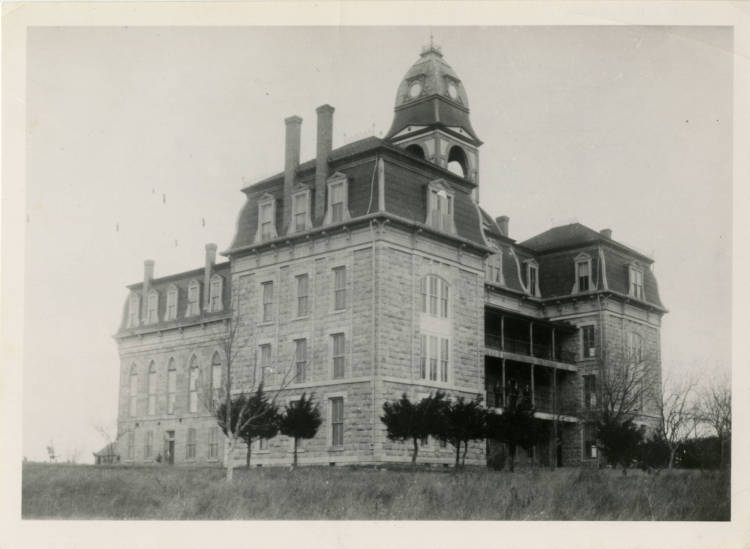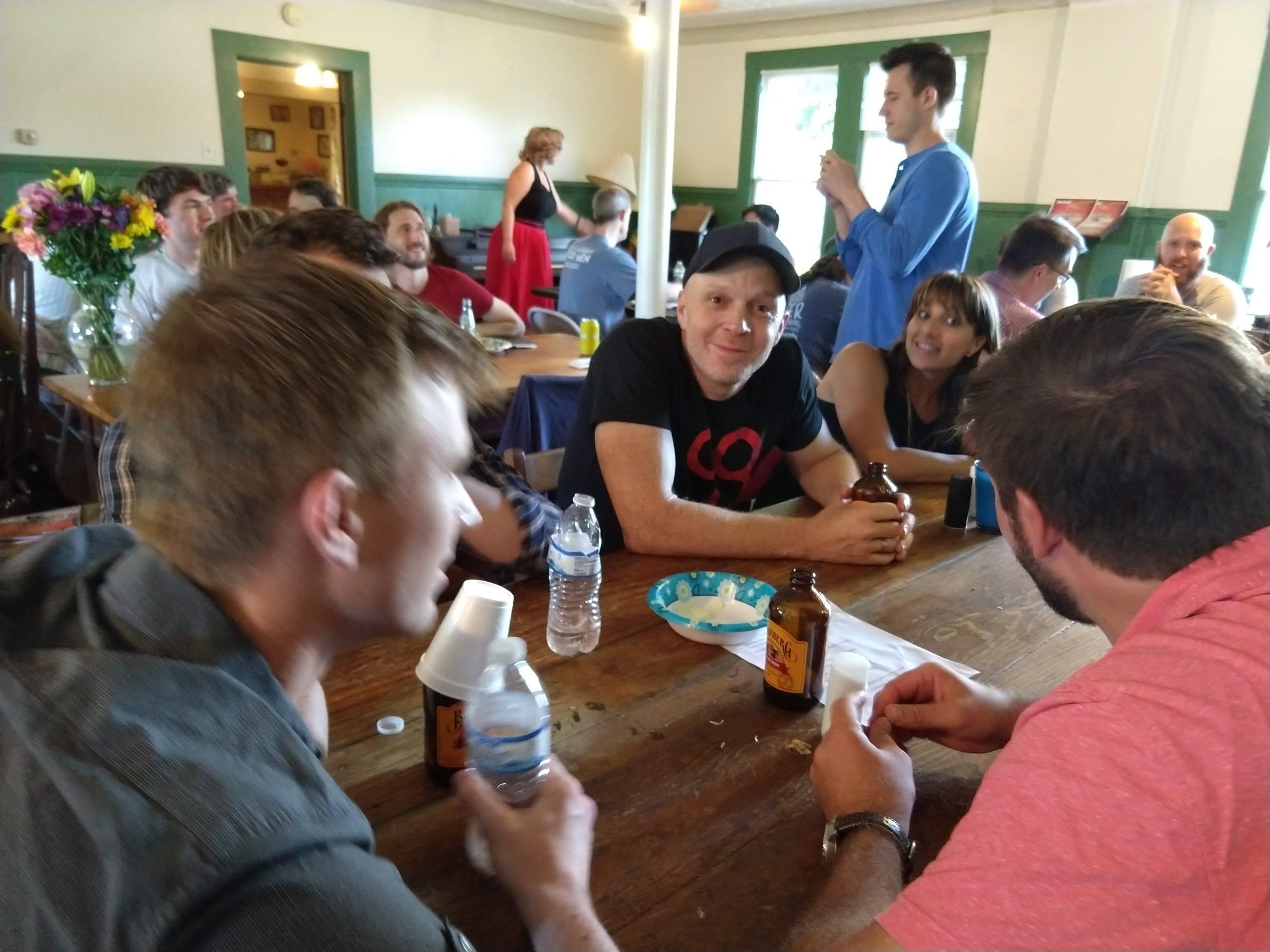About Us
The Trinity Institute was founded in 1989 by Dr. James Parker, III, a professor of theology who had been inspired by his time as a student at the famous L'Abri Fellowship in Switzerland, to establish a Christian study center in his home state of Texas. In 1990 the Institute purchased our one-of-kind campus property, the former home of San Antonio's Trinity University, built in 1869. Like L'Abri, The Trinity Institute is a place where Christians seeking a deeper understanding of their faith can spend time in reading, prayer, and fellowship with like-minded Christians. Through our conferences, such as the long-running Trinity Arts Conference, or our more intimate weekend conferences, or individual spiritual and artistic retreats, and the timeless feel that is unique to Tehuacana, the Institute is a place where the mind can set aside the noise of the world and contemplate the higher calling of historic, orthodox Christianity.

Dr James Parker, III, Founder and Executive Director

Growing up in a supportive Christian home in Abilene, Texas, James Parker III enrolled in Baylor University. What he encountered at Baylor caught him by surprise. For the first time, other than minimal exposure in high school, Parker encountered people who not only did not agree with his conservative Christian faith, but challenged it as well.
Parker specifically remembers a friend who, though she was raised a Methodist, simply claimed she did not believe anything. In such a conservative area of the United States, Parker had not previously experienced people who plainly reject faith of any kind.
At this point in his life, Parker found that if he was going to discuss his faith at all, he would have to defend it. This reality began an interest in dialoging with people about the validity of Christianity. In addition, Parker also made a friend who introduced him to evangelical literature. These two occurrences would shape the rest of his personal and professional life.
The evangelical literature Parker first experienced has remained formative throughout his life. The writings of Carl F. H. Henry, Francis Schaeffer and C.S. Lewis, most notably influenced Parker, and each author continues to affect him today. In those college years of his life, Henry especially became a hero to Parker.
"He was my hero and still is my hero," Parker said of Henry's writings.
These authors showed Parker how he could interact well with non-Christians. This faithful interaction is something that, according to Parker, is unavoidable by any Christian.
"The thing is, everyone engages in apologetics as a Christian," Parker said. "It's not question of whether they're going to [engage], it's a question of whether they're going to do it competently."
His desire to competently defend his faith drove Parker to pursue studying the Bible at the graduate level. Earning graduate degrees from Trinity Evangelical Divinity School (M.A.), Princeton Theological Seminary (M.Div., Th.M.), Basel University (D.Theol.) and Johns Hopkins University (post-doctoral studies), Parker's fields of specialization include New Testament, systematic and contemporary theology and apologetics.
"My interest runs, pretty much, the gamut, everything from philosophical arguments to historical evidences," Parker said about the diversity of his interests within apologetics.
After graduating from Basel University, Parker briefly taught a myriad of theological courses at what is now McMurry University, before pursuing additional studies at Johns Hopkins. Parker then taught for one year at Southeastern Seminary, after which he taught two years at Eastern Baptist Theological Seminary, followed by stints at Dallas Baptist University and Criswell College.
Before retiring after twenty years at Southern Seminary, Dr. Parker taught in the worldview and culture division, including the introductory course in Christian philosophy and various apologetics courses at the master's and doctoral levels.
In both his previous teaching experiences and his post, Parker enjoys what he reads and studies professionally on a personal level also.
"I read for fun what I teach for a living," Parker said. "And that is a wonderful, wonderful profession to be in, where you get paid for what you enjoy doing."
When not reading about theological issues, Parker enjoys reading fantasy. He has spent years trying to find the next J.R.R. Tolkien, but simply cannot find anyone to compare, Parker claims. And when apologetics and fantasy novels are not particularly interesting, Parker always enjoys Animal Planet. One should especially ask Parker about marine animals - Australian jellyfish specifically.
The Campus
The campus of The Trinity Institute is the former home of three institutions of higher learning, Trinity University, Westminster College and Westminster Junior College.
1869-1902: Trinity University
Trinity University was funded by contributions consisting primarily of underdeveloped land and a few houses. Trinity commenced classes on September 23, 1869. By the end of the school year, about 100 students were in attendance. Six miles from the nearest railroad station, Tehuacana was accessible only by horse drawn carriages. In 1902, Trinity moved 75 miles to Waxahachie, and in 1941, Trinity accepted an invitation to move to San Antonio, which would become the University's permanent home.
1902-1971: Westminster College/Westminster Junior College and Bible Institute
The property was sold to the Methodist Protestant Church, which moved its school, Westminster College, to the location; that school operated at Tehuacana until 1950. The campus was unoccupied until 1953, when it was opened by the Congregational Methodist Church as Westminster Junior College and Bible Institute. The school's program was expanded to include the basic junior college curriculum. The campus comprised twelve buildings, including housing for faculty and students. In 1969 the library held 9,000 volumes, in addition to pamphlets, magazines, newspapers, and documents. The school operated under the auspices of the Congregational Methodist Church but was not a sectarian school. It offered an associate of arts degree. The Bible Institute, a department of the college, offered a four-year curriculum leading to the degree of bachelor of religion. In 1968–69 the college had fifteen faculty members and ninety-five students, but by 1970 the student body had decreased to sixty; Elmo McGuire was president. In 1971 thirty-five students and seven teachers of the Westminster Junior College and Bible Institute moved from Tehuacana to a forty-acre campus at Florence, Mississippi, a location called the "geographical center" of the Congregational Methodist Church.

What Others Say About The Trinity Institute
Drive onto the campus of the Trinity Institute and you will see Jim Parker dressed in his jeans and boots, looking a little like a rancher. Most never guess he is a philosopher, professor and scholar with degrees from Baylor University (B.A.), Trinity Evangelical Divinity School (M.A.), Princeton Theological Seminary (M.Div., Th.M.), Basel University (D.Theol.) and Johns Hopkins University (post-doctoral studies). Jim’s the visionary who founded the institute, and he’s the one responsible for the welcoming and accepting spirit that brings people back time and time again.
Mary McCleary, Texas State Artist (elected by unanimous consent of both the Texas House and Senate)
Trinity Institute provides a refuge for up & coming and/or already made artists from the speed the city by offering counsel, wisdom, and direction, bringing together lectures, spokesmen, other painter/poet/musicians/creative types across the disciplines to unite them in gatherings of conference and song.
Josh T. Pearson, singer/songwriter
This morning I was thinking about Jim's ministry over the years, and what it has meant to me, along with what I remember of some early conversations about the vision for the Trinity Institute. I know things have developed over time, and emphases have no doubt changed, but here are a few of things I was thinking that the Trinity Institute exists for:
To be a faithful witness to the richness of historic Christianity
To encourage individuals to explore this same richness and to provide the resources to do so
To give confidence to believers, and support to those earnestly seeking answers
To stimulate the desire for and provide guidance in the development of a comprehensive worldview
To promote the arts in all their forms, as a reflection of God's beauty in world and his image in human beings
To model substantive engagement with contemporary culture
Jeffrey Brower, Professor of Philosophy and head of the Ph.D. program at a major US university
I believe Trinity is the clearest example of Unpretentious Christianity I have seen anywhere in the world.
James Michael Allen, M.D. Psychiatry
“I wanted to let you know what an enjoyable, restful and refreshing week my friend Jane and I had at Trinity Institute. My friends and family here in Canada thought I was a little out of my mind when I told them I was going to stay at a historic old college tucked away in a small village in Texas – especially since I had heard about it on the internet. But as I said to your manager, I had a good feeling about the place – and it turned out my instincts were right. Your caretakers are delightful people, inspiring in their faithfulness and generosity of spirit. Trinity Institute is remarkable. I loved awakening each day to the songs of birds; the wildflowers were incredible; the cactus curious; the accommodations clean and comfortable. So thank you, for the effort you are making with that place, and for making it available at such a small cost to curious Canadians like myself, and to so many others.”
Blessings, Lynda
A testimony from a recent Canadian newspaper reporter who came for a personal retreat

Support The Trinity Institute
As a non-profit, The Institute has many ongoing improvement projects as well as monthly operating expenses that cannot be met without your support. Consider a one-time or recurring donation to help the Institute continue its mission.